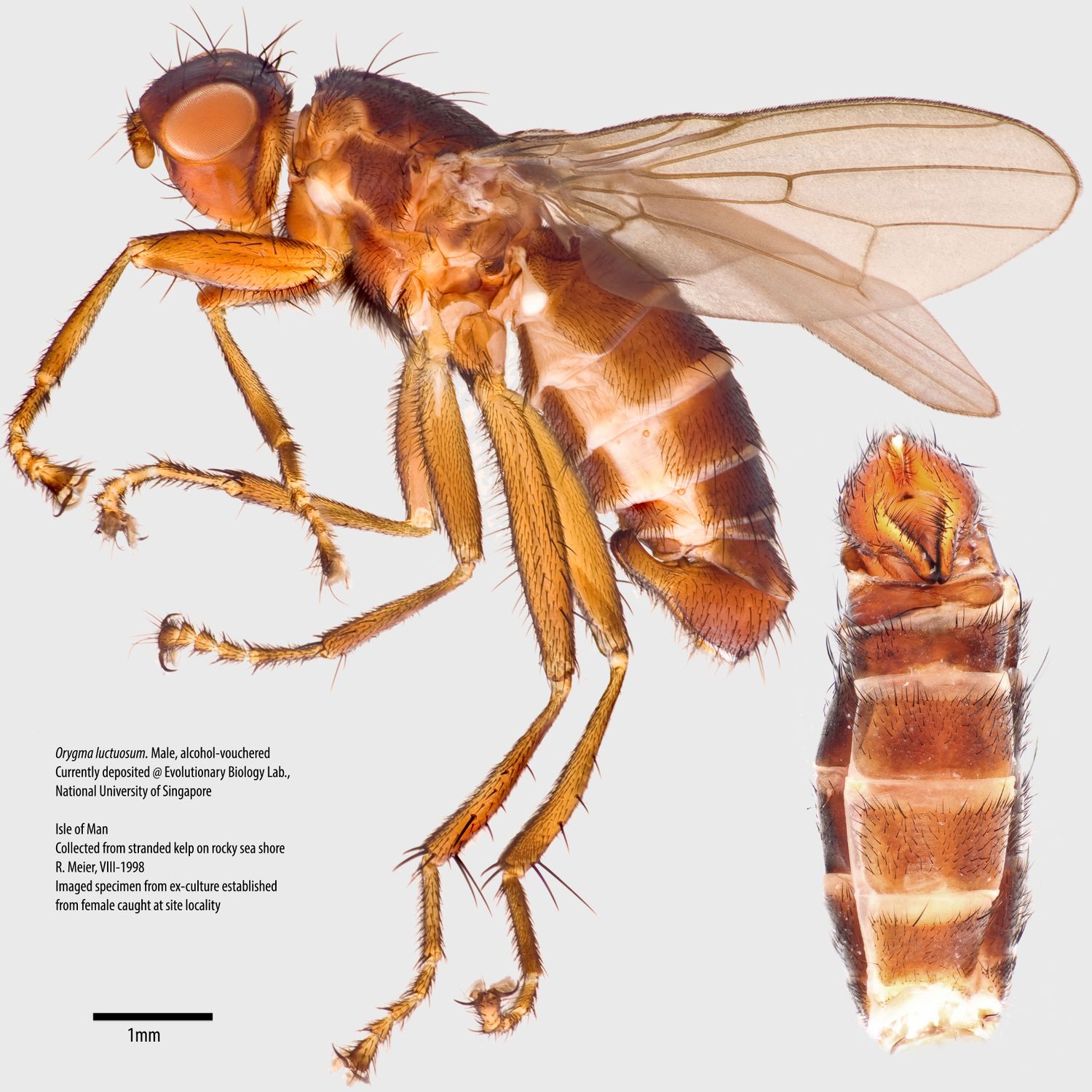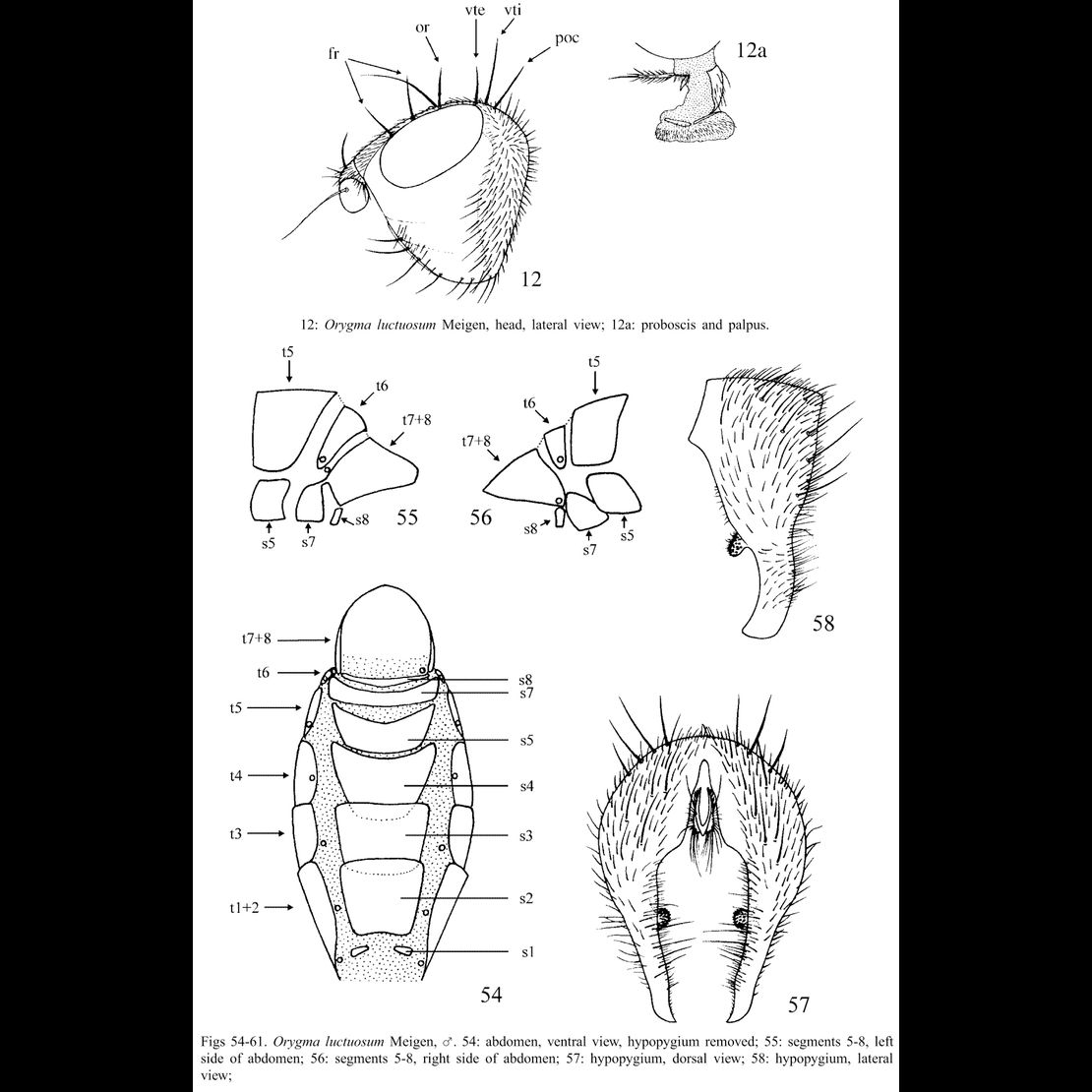

Male

Orygma luctuosum. Male alcohol-vouchered specimen.
Deposited at: Evolutionary Biology Laboratory, National University of Singapore (Singapore)

Diagnostic illustrations for adults
Adapted from:
Pont AC & Meier R (2002). The Sepsidae (Diptera) of Europe. Brill: 1-188.
Adult Orygma can be distinguished by a number of characters, such as the large bristly appearance; small eye ; 2 frontal and 1 orbital setae, all strong; well-developed palpus; 3 stout dorsocentrals; or densely haired anepimeron, anepisternum and katepisternum.
Source:
Pont AC & Meier R (2002). The Sepsidae (Diptera) of Europe. Brill: 1-188.
Sepsidae: Orygmatinae: Orygma
ORYGMA LUCTUOSUM Meigen 1830. United Kingdom: not given [probably GREAT BRITAIN: England]. Holotype ♂, in Muséum National d’Histoire Naturelle, Paris, France.
fucicola Doumerc 1833 (as Psalidomyia). France: Dieppe. Syntypes ♂♂ and ♀♀, presumed destroyed.
salsa Johnson 1922 (as Eugenacephala). Usa: Essex Massachusetts. Holotype ♂, in Boston Society of Natural History, Boston, USA.
ruficeps Curran 1925 (as Eugenacephala). Canada: Natashquan Labrador. Holotype ♂, in Canadian National Collection of Insects, Ottawa, Canada.
Source:
Ozerov 2005, World Catalogue of the Family Sepsidae (Insecta: Diptera), Zoologicheskie issledovania 8.
Palaearctic (Europe): Belgium, Denmark (incl. Faroe Is), France, Germany, UK, Iceland, Ireland, Norway, Russia (Arkhangel’skaya Oblast’, Karelia, Murmanskaya Oblast’), Sweden.
Nearctic: Canada (Labrador, New Brunswick), Greenland, USA (Massachusetts).
Source:
Ozerov 2005, World Catalogue of the Family Sepsidae (Insecta: Diptera), Zoologicheskie issledovania 8.